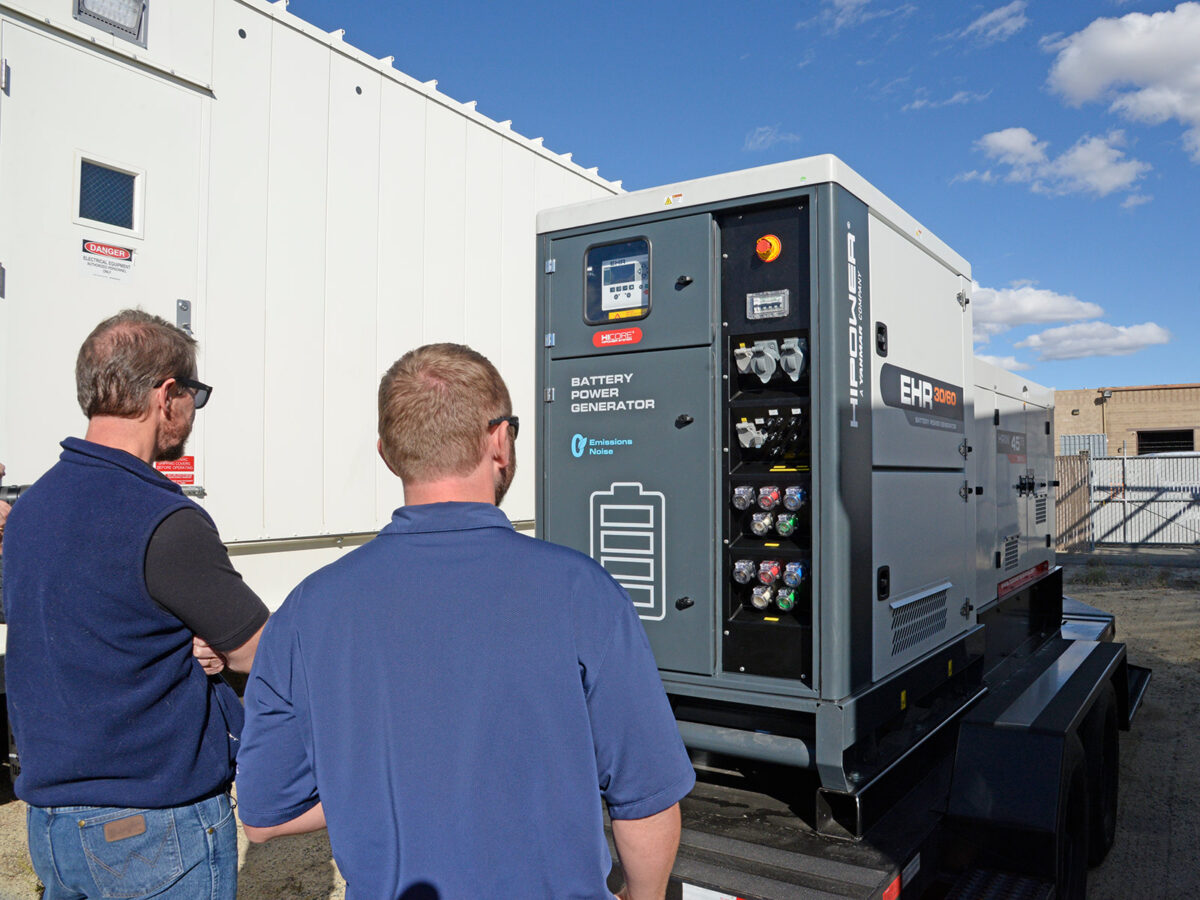Battery energy storage systems are a cornerstone of energy transition strategies. Before you can transition from fossil-based systems to renewables, you need a step-by-step plan to implement a battery energy storage system (BESS). Review the top five considerations as you prepare for your energy transition and see how Global Power Supply can help power your transition.
1. Outline Project Scope
For most systems, the electrical demand requires a battery energy storage solution. This system allows green energy solutions, including wind and solar power, to replace fossil fuel-dependent alternatives. The first step in implementing a BESS is to carefully outline the scope of the project.
Project Goals
Is your goal net-zero carbon emissions, or are you looking to decrease your emissions by a set percentage? Will your energy storage system store only energy produced by renewables, or are you planning a gradual energy transition? You’ll need to identify your specific, actionable project goals before you can implement an energy storage system.
Renewable Integration
Solar, wind, and other renewables provide variable energy. A properly sized and designed storage system takes this variability into account, ensuring there’s always adequate power available. Your BESS system needs to factor in the energy source or sources. For example, a system relying solely on solar panels has installation factors that are distinct from a system that combines wind and solar energy sources.
Feasibility Report
Your available budget and required timeline for energy storage solutions are major factors in your project outline. Whether you conduct a feasibility report yourself or schedule an application study by a team of power equipment engineers, this will help you identify any obstacles before you implement an energy storage solution.
2. Explore Battery Options
The specific type of batteries you select for your energy storage system affects the cost, efficiency, and size requirements. Review the following battery factors and compare them with the scope of your project:
- Battery type: The most common battery options that use chemical processes to store energy are lithium-ion or sodium-ion batteries. While there are many battery options available, lithium iron phosphate battery solutions offer a long lifetime and high charge efficiency.
- Voltage: Be sure to verify the voltage of your chosen batteries.
- Power supply: BESS unit batteries can store energy from renewable energy sources or be recharged using fossil-based sources, like the Hipower 30 kW Hybrid.
3. Estimate the Size of the Battery Energy Storage System
Your BESS needs to provide enough power for your energy needs. Failure to create a system with adequate power rating can disrupt the flow of continuous power. The power rating of an energy storage system describes the energy capable of flowing in or out of the system. This rating is typically measured in kilowatts, though larger projects are measured in megawatts. Here are the steps to estimate your energy usage:
- Verify the wattage of all potential loads
- Estimate average run time
- Calculate power requirement, typically in kilowatt-hours per day
These calculations can assist you in sizing your battery energy storage system. If you’re using a hybrid system that sources power from renewables and fuel sources, our power generation calculators can assist you in determining fuel consumption to complement your battery system.
4. Review BESS Site Requirements
Battery energy storage systems can be mobile units or fixed operations. Both require specific site features to ensure safe, efficient operation. These are just a few factors that you need to review to ensure your site is prepared for BESS installation:
- Fire code requirements
- Erosion control specifications
- Security fencing needs
- Electrical infrastructure integration
- Right-of-way for the Department of Transportation
- Foundation and other structural elements
If your organization doesn’t have the capability to perform a full site review, consider working with an experienced team of engineers. At Global Power Supply, we offer specific actionable recommendations based on an inspection of your BESS site, in addition to other power equipment services.
5. Perform Safety Training, Testing, and Documentation Process
A battery energy storage system needs to meet regulatory compliance to provide a safe, effective step in your energy transition strategy. Once your system is installed, your organization must continue to monitor safety standards, perform routine maintenance and testing, and document its operation to promote a safe energy storage solution. These ongoing steps not only maintain operational safety but also promote regulatory compliance.
Power engineers from Global Power Supply offer training and support services to assist you in preparing your employees for this transition to green energy. From maintenance schedules to proper safety routines, our team can work alongside you to prepare for efficient and compliant operations from day one.
Connect with Global Power Supply
Discover how to promote green energy use through renewables with a battery energy storage system. Contact us at Global Power Supply to learn more about how a BESS can assist you in your energy transition. Learn about our site-walk, load profile, and other services to see how our team of power engineers can help you take the next step toward net-zero or your own clean energy goals.
